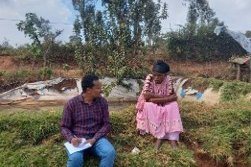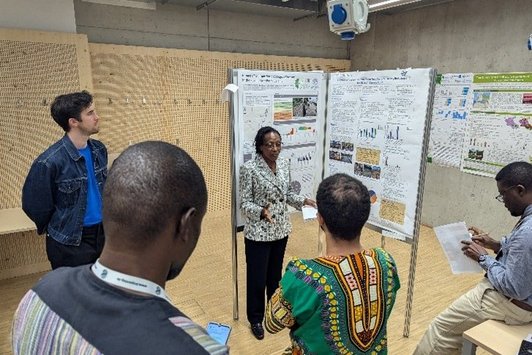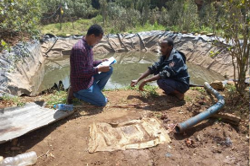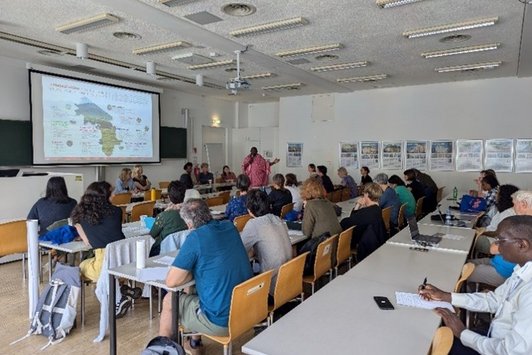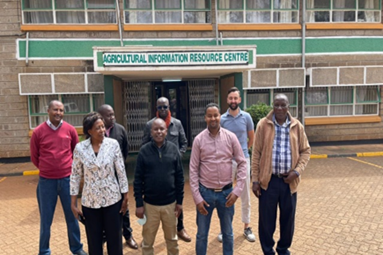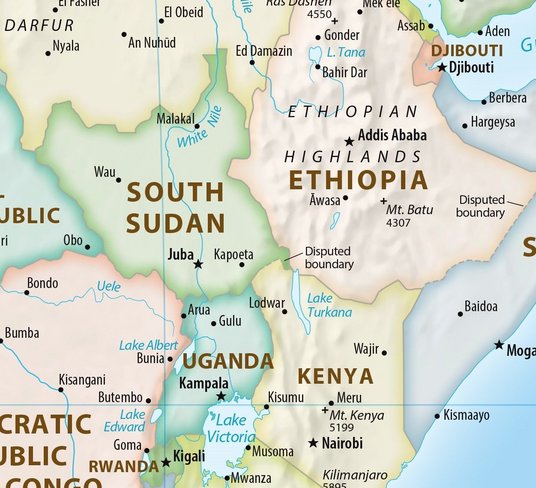
Project completed: P060_Kenya_Ethiopia_Uganda
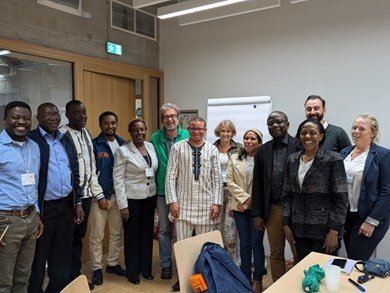
Partnership Program in Integrated Agri-Aquaculture Systems for Food Security and Poverty Reduction in East Africa
Cooperating countries: Kenya, Ethiopia, Uganda and Austria
Coordinating institution: Egerton University, Kenya, Prof. Isabel N. Wagara, iwagara@egerton.ac.ke
Partner institution: Laikipia University, Haramaya University, Gulu University, BOKU University of Natural Resources and Life Sciences
Project duration: 1 April 2022 - 31 March 2024
Budget: EUR 49.500
Abstract:
Smallholder farming systems in Sub-Saharan Africa are characterized by low productivity, profitability and sustainability. Although the smallholder farmers produce more than 80 percent of the food in the region, they are the most vulnerable to food and nutrition, insecurity, poverty and environmental degradation due to low levels of agricultural productivity, profitability and sustainability. Overall, agricultural productivity can be increased through integration, intensification and diversification of agri-aquaculture in smallholder systems, whereby waste from one part of the system becomes a crucial input in other components in the system. This calls for strong cooperation partnerships to exchange and transfer knowledge, skills, technologies and innovations in integrated agri-aquaculture systems to smallholder farmers for enhanced productivity and climate change resilience. This should contribute to SDGs on; no poverty, zero hunger and responsible consumption and production.
The proposed project is a Partnership Program in Integrated Agri-Aquaculture Systems for Food Security and Poverty Reduction in Eastern Africa, based on the SDGs, seeking and aiming to:
- establishing a cooperation regional network between the countries of Kenya, Ethiopia and Uganda, and Austria;
- strengthening knowledge sharing for increased food production and poverty reduction by integrating resilient agriculture-aquaculture systems; and
- promoting a guideline integrating triple wins of increasing food productivity, job creation and ensuring sustainable consumption (Zero wastes).
The triple wins build on SDGs 1, 2 and 12 and seeks to focus on priority agri-aquaculture systems where partnerships can develop a formidable evidence-based guideline with expertise and guidance from the Austrian partnership. In the three East African countries, about 80 percent of production is carried out by small holder farmers whose production is associated with high poverty levels, poor production and threats of climate change. Agri-aquaculture approach provides a cyclic agriculture approach that focuses on recycling, enhancing production and making contributions to climate change effect mitigation.
The project will mainly focus on:
- promoting technologies for women and youth entrepreneurship for food production, nutrition, and income generation.
- contributing to African Agricultural transformation through identification and documentation of improved technologies for the integration of Agri-Aquaculture at small scale levels, and ultimately contribute to the enhancement of food and nutritional security at household levels within the continent.
Summary:
The AgriAqua project fostered a multi-institutional partnership across universities and research institutions in Kenya, Uganda, Ethiopia, and Austria to promote integrated agri-aquaculture systems (IAAS) as a transformative approach to enhancing smallholder farming systems. IAAS links agriculture and aquaculture into circular, resource-efficient systems where waste from one component is repurposed as input for another, enhancing productivity, profitability, and resilience. The project addressed critical challenges faced by smallholder farmers in Eastern Africa, including low productivity, food insecurity, poverty, and climate vulnerability. The key achievements include establishing a regional IAAS research and implementation network, capacity-building programs, and identifying critical leveraging points for adoption, such as fish-vegetable integration, aquaponics, and nutrient recycling systems. The research combined scientific and grey literature reviews with extensive community engagement activities conducted in Kenya (Kirinyaga and Nakuru Counties), Uganda (Gulu, Omoro, Amuru, and Nwoya Districts), and Ethiopia (Damota, Aweday, Finkille, Haramaya, and Kurro Districts). The team engaged over 100 smallholder farmers through focus groups, forums, and field visits, documenting barriers such as limited IAAS awareness, high costs and poor accessibility of inputs (fish feed and seeds), water scarcity, inadequate market infrastructure, and minimal value addition. Socioeconomic challenges included limited access to training and extension services, constraining IAAS adoption. AgriAqua emphasized co-creation with local communities, engaging women and youth as key stakeholders in IAAS implementation. Workshops and forums provided platforms for knowledge exchange, context-specific practice identification, and the development of evidence-based guidelines. Gender and diversity integration ensured equitable participation and decision-making, empowering marginalized groups while advancing inclusive development.
The findings directly align with the Sustainable Development Goals, particularly SDG 1 (No Poverty), SDG 2 (Zero Hunger), SDG 12 (Responsible Consumption and Production), and SDG 5 (Gender Equality). IAAS demonstrates strong potential to reduce waste, enhance food production, and build sustainable livelihoods. However, future work must address systemic barriers by improving input accessibility, advancing water resource management, and strengthening value chains and market linkages through targeted policy and institutional support. Despite the progress of the project, gaps remain in scaling IAAS to diverse agroecological contexts. Research must refine models for local adaptability, tackle knowledge and institutional deficits, and explore climate adaptation strategies. Enhancing economic feasibility through innovations in value addition, market integration, and participatory governance remains a priority. This project established a strong foundation for interdisciplinary research, fostering collaboration and capacity-building while catalyzing sustainable agricultural transformation. By scaling solutions and addressing persistent challenges, IAAS offers a clear pathway to strengthening smallholder food systems, contributing to regional food security and global sustainability objectives.
